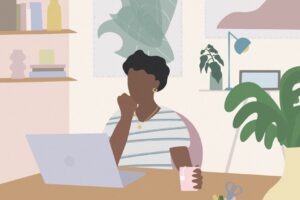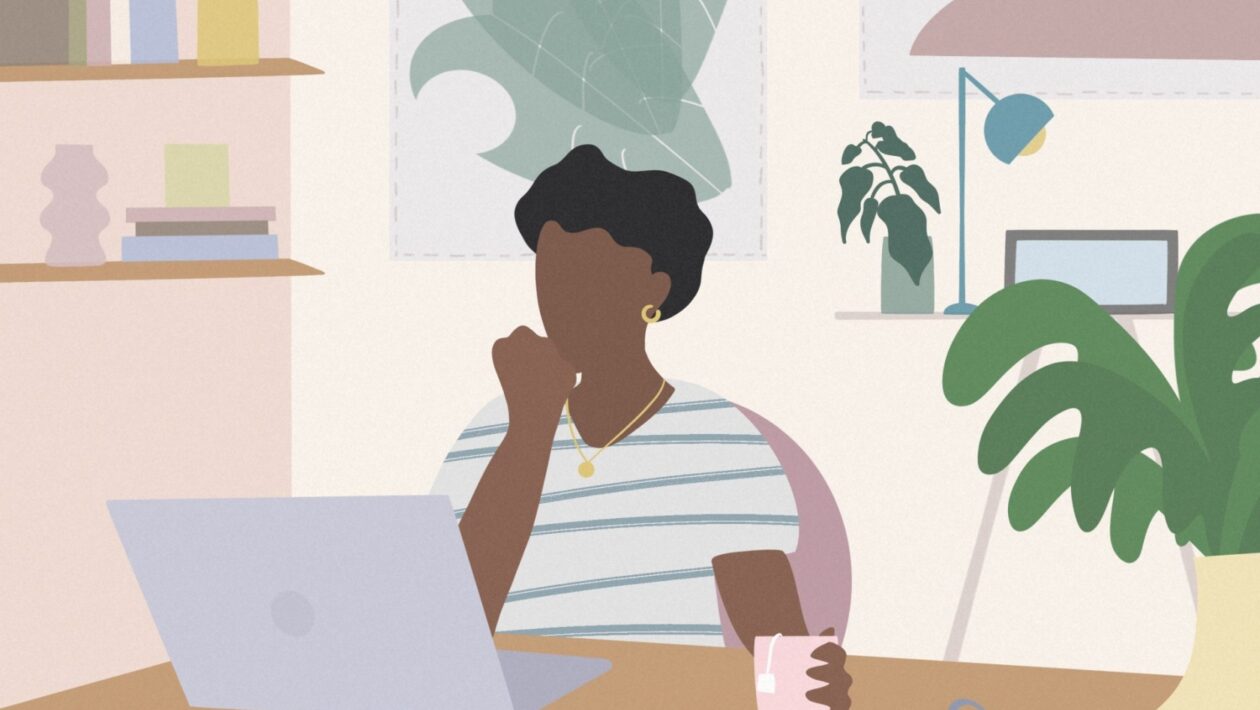
Like many women of my generation, I grew up believing my goal in life was to find a man and be in his company forever. While American culture has certainly made strides since the era of happily-ever-after Disney princesses and M.R.S. degrees, there is still a lingering notion that being alone, especially as an adult woman, is a kind of failure, one we should avoid at all costs.
According to this logic, I’ve spent most of my life as a failure. Although I’m currently in a relationship that I like very much (hold your applause, that’s not the point of this article), my habit for years was to fall into mercurial flings that possessed the narrative arc of a fart: After a long and uncomfortable buildup, they would feel sort of nice, then fill the air with stink, then linger a beat too long before finally dissipating for good.
Not surprisingly, I found myself more or less single for most of my adult life. As my friends partnered up around me, I raged against myself. Why couldn’t I find a partner? What was wrong with me? Meanwhile, I was writing like crazy, filling the empty spaces with stories and poetry and essays and travel. Meanwhile, I was becoming the person I wanted to be.
Art Monsters Must Know How to Be Alone
The first time I encountered the term “art monster,” I practically checked my mouth for fangs — I desperately wanted to be one. The term comes from Jenny Offill’s book Dept. of Speculation, in which the narrator writes, “My plan was to never get married. I was going to be an art monster instead. Women almost never become art monsters because art monsters only concern themselves with art, never mundane things.”
At a glance, it seems a strange creature to aspire to — a monster of anything. And yet the term possesses the same ring as other glorified, male-dominated artistic identities from which women have traditionally been excluded: superhero, rock star, dirtbag, bohemian, genius, explorer. The commonality between these identities is a quality of physical, spiritual, or emotional aloofness — an aloofness that women have not, historically, had access to and that has created a distinction in which male solitude is cool and female solitude is sad or dangerous. Whereas male loneliness leads to scientific discoveries, the eradication of crime, and high-alpine epiphanies, female loneliness results in exile in an attic, or a head in an oven, or lots and lots of cats.
This is why, as women, it is our responsibility to live against this narrative, to venture out on our own, or, if we are already alone, to make use of our solitude. Rather than view our loneliness as a wound that requires the Band-Aid of somebody else’s affection, what if instead we filled it with art? With action? With progress? What if, instead of getting sad, we embraced our solitude and got to work?
Everything I Know and Like About Myself I Learned from Being Alone
Last year, I spent eight months caretaking a ranch in Colorado. The ranch belongs to the writer Pam Houston, who was my teacher in graduate school and has since become a close friend, mentor, and art-monster role model to the extreme. Because she travels and teaches all over the world (by herself), Houston needs someone to watch her animals while she’s away.
My months on the ranch were easily the most beautiful and lonely of my life. This was during the 2016 election, and I felt isolated, restless, and a touch afraid. But I was working. Every day, I’d write, read, and, perhaps most importantly, think. I learned who I was when nobody was around (turns out I like to dance to shitty music and eat popcorn for dinner and not change my clothes, like, ever). Some nights I’d lay in bed with the dogs and think of how nice it would be to have a boyfriend there. Looking back, I realize how nice it was that I didn’t.
When I eventually left the ranch, I did so with more confidence and self-respect than I had when I arrived. I had learned how to truly like myself, and how to turn my loneliness into something productive.
Without a doubt, the times I’ve spent living, traveling, and hiking alone have been the most formative of my life so far. These experiences are a result of immense privilege, a privilege I know many people — women in particular — do not have. But for those who do, it’s imperative they embrace opportunities to be alone. You don’t have to go full Cheryl Strayed or study chimpanzees in the wild, but you do need to challenge yourself.
How to Feel Alone When You’re Falling in Love
After leaving the ranch, I moved to Washington to start a job in North Cascades National Park. At the ranch, I’d grown used to reading two books a week, writing six hours a day, and taking long solitary walks with the dogs. In Washington, I was suddenly living in a house with four other people, working full-time, and trying to finish my novel manuscript, all while making time for hiking. The way I saw it, there was no time for love. Or, if there was, it didn’t figure highly on the agenda.
Then, as these things go, I started spending a lot of time with one of my roommates, a guy who worked trails in the park and spent his days off drinking sweet tea, fishing, and listening to records. He was smart, and funny, and seemed to think I was, too. We started staying up late together, playing board games and drinking beer. We took it slow, sussing each other out. Because I knew I didn’t need someone, I was free to finally want someone, to choose a good partner rather than someone who would serve as a shield from loneliness.
And yet, when he was home, I found myself wanting to spend every moment with him, sacrificing the alone time I would have otherwise used to read and write. The art monster was still inside me, but she did not seem as hungry. I was suddenly happy, but with this happiness came a fear I’d never experienced before — I was losing my most trusted writing tool: loneliness. I was also losing one of my closest friends.
At one point I called my mom and told her the news. “I’m really happy,” I said, “but I’ve only read one book this month.” My mother is a bibliophile, so I expected her to caution me against giving up too much of my alone time. Instead, she said, “Sometimes books are for when you don’t have people around. Give it time. Enjoy it.”
When I think of the years I’ve spent alone with books and writing, I wouldn’t trade them for anything. When I try to imagine these years with someone else (a nameless, faceless man who is kind and wonderful but nevertheless there), I feel my heart sink, for while I likely would have been happier, I would not have become the writer I am today. I would not have become the person I am today.
As far as the question of how to feel that productive brand of loneliness when you’re falling in love — I’m not yet sure. I’m still figuring it out. Giving it time. What I do know is that I would no sooner wish away my years of loneliness than I would wish away the experience of falling in love — they are opposite sides of the same experience, really. If loneliness is where the art monster lives, then love is what she eats, the thing that keeps her hunting — the reason for her fangs.

